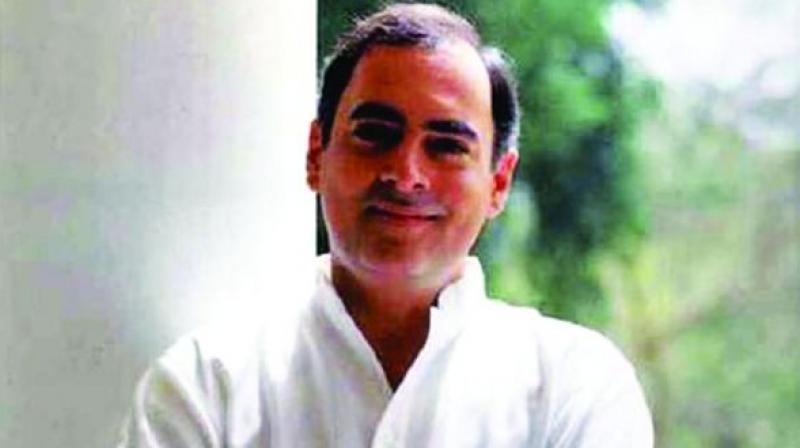Will Rajiv Gandhi case convicts be set free?

Chennai: Exactly 28 years ago former Prime Minister Rajiv Gandhi was killed by LTTE suicide bomber during electioneering at Sriperumbudur. The last word is yet to be said on 'all' the people involved in the gruesome assassination, which shocked the world. The Multi-Disciplinary Monitoring Agency (MDMA) constituted by the CBI continues to be a lame duck. The second issue remains as a sore reminder of the tragedy is the plea and petitions to the Tamil Nadu governor from seven lifers sentenced for involvement in the murder.
Rajiv Gandhi was assassinated on May 21 1991 by a woman operative of LTTE, who greeted him at a rally in Sriperumbudur town with a bomb strapped to her chest. His death anniversary is also observed as Anti-Terrorism Day. Rajiv Gandhi became the youngest PM of the country when he was sworn in at the age of 40 as the sixth Prime Minister of India after his mother Indira Gandhi's assassination in 1984. He served as the Prime Minister from 1984 to 1989.
A large number of Congress cadres led by TNCC president KS. Alagiri took out silent march to pay tributes to Rajiv Gandhi in Chennai. Among others the Chief Electoral Officer Satyabrata Sahoo took pledge as the nation observes May 21 as Anti-Terrorism Day to honour the sacrifices made by thousands of soldiers, who fought against terrorism.
Even as plea and petitions of seven persons convicted in the sensational assassination seeking premature-release pending before Governor, the MDMA, a unit of the Central Bureau of Investigation (CBI) probing the assassination had not made headlines and continues to be a lame duck, experts say. The MDMA was formed in December 1998 to unearth the larger conspiracy behind the suicide bombing the agency has been submitting report regularly to a trial court in Chennai. The probe has not made headway so far, experts claim.
According to experts, after dismissal of a petition filed by the collateral victims of the bomb blast that killed Rajiv Gandhi recently, only Tamil Nadu Governor stands between the seven convicts and their freedom. The voice seeking their release grows louder in the state, in September 9 last, the Tamil Nadu Cabinet recommended their release and Governor had, till date, refrained from taking decision.
Various political parties and Tamil activists supporting their release reasoned that the seven lifers served 28 years in jail. Supreme Court in the past commuted their death penalty to life sentence.

